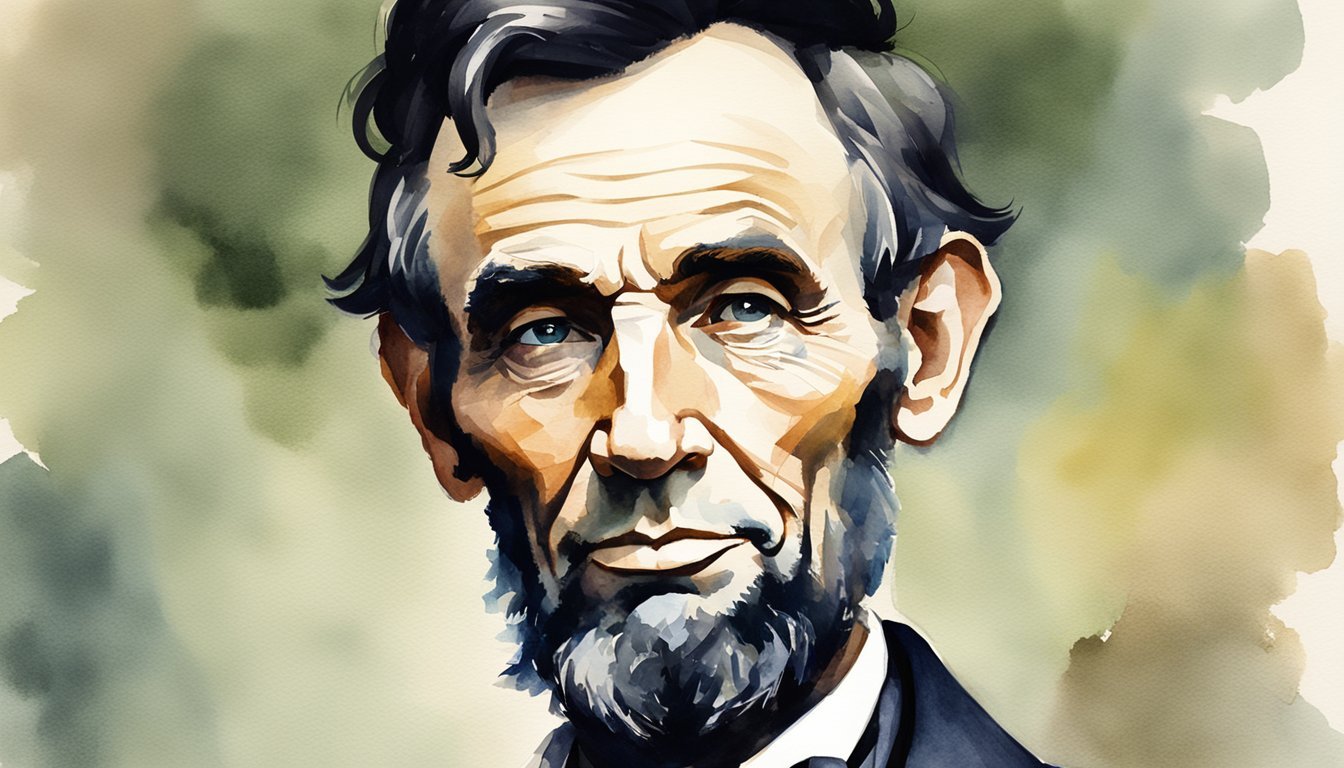Early Life and Political Career

Childhood and Education
Abraham Lincoln was born on February 12, 1809, in a one-room log cabin in Hardin County, near Hodgenville, Kentucky. His family moved to southern Indiana in 1816. Lincoln’s early life on the frontier shaped his character and instilled in him a strong work ethic. His formal education was scarce and sporadic, but he developed a love for books and learning. He taught himself through reading a variety of subjects such as literature, mathematics, and law.
Early Political Involvements
Lincoln’s first foray into politics began when he moved to New Salem, Illinois. He was elected to the Illinois State Legislature as a member of the Whig Party in 1834. He served four consecutive terms from 1834 to 1841, during which he became a prominent voice against the spread of slavery.
In 1846, Lincoln was elected to the U.S. House of Representatives as a member of Congress from Illinois. As a Whig congressman, he opposed the Mexican-American War and the extension of slavery into new territories. During this time, however, the Whig Party was in decline, and Lincoln’s political career seemed to be stagnating.
Law Practice and Marriage
In parallel to his political career, Lincoln decided to become a lawyer. Studying law books, he passed the bar examination and became an attorney in 1836. In 1842, Lincoln married Mary Todd, and they had four children.
Upon returning to Illinois after his term in Congress, Lincoln focused on his law practice. In 1854, the passage of the Kansas-Nebraska Act led to the dissolution of the Whig Party and the rise of the Republican Party. Lincoln joined the new party and gained prominence as an emerging voice against Stephen A. Douglas and the spread of slavery in new territories.
This stage of his political career set the stage for his eventual nomination as the Republican candidate in the 1860 presidential election, ultimately leading to his presidency and the significant impact he had on the United States.
Presidency and the Civil War
Election and Leadership
Abraham Lincoln, the 16th President of the United States, was elected in 1860 and faced the challenge of leading the nation during the tumultuous years of the Civil War. Born in a log cabin near Hodgenville, Kentucky, Lincoln had humble beginnings and little formal education. As a self-taught lawyer, he showed great dedication to the cause of preserving the Union.
Emancipation Proclamation and Abolition of Slavery
Lincoln’s most famous action as president came on January 1, 1863, with the Emancipation Proclamation. This groundbreaking document declared that all enslaved people in the Confederate states “shall be then, thenceforward, and forever free.” While the Emancipation Proclamation did not immediately free all enslaved people in the United States, it laid the foundation for the 13th Amendment, which would ultimately abolish slavery.
Military Strategy and Key Battles
Lincoln’s successful military strategy relied on the leadership of trusted generals such as Ulysses S. Grant. Key battles like Gettysburg and Vicksburg turned the tide in favor of the Union, while the Confederate stronghold of Fort Sumter marked the beginning of the war. Lincoln’s suspension of habeas corpus and his strong-armed efforts to maintain order within the nation were important in laying the groundwork for the eventual Union victory.
Assassination and Legacy
Tragically, President Lincoln’s life was cut short on April 15, 1865, when he was assassinated by Confederate sympathizer John Wilkes Booth at Ford’s Theatre in Washington, D.C. Lincoln’s famous speeches, such as the Gettysburg Address and his Second Inaugural Address, showcase his commitment to unity, democracy, and “malice toward none with charity for all.” Today, Lincoln is remembered as a champion for human rights and as one of the greatest presidents in U.S. history.

